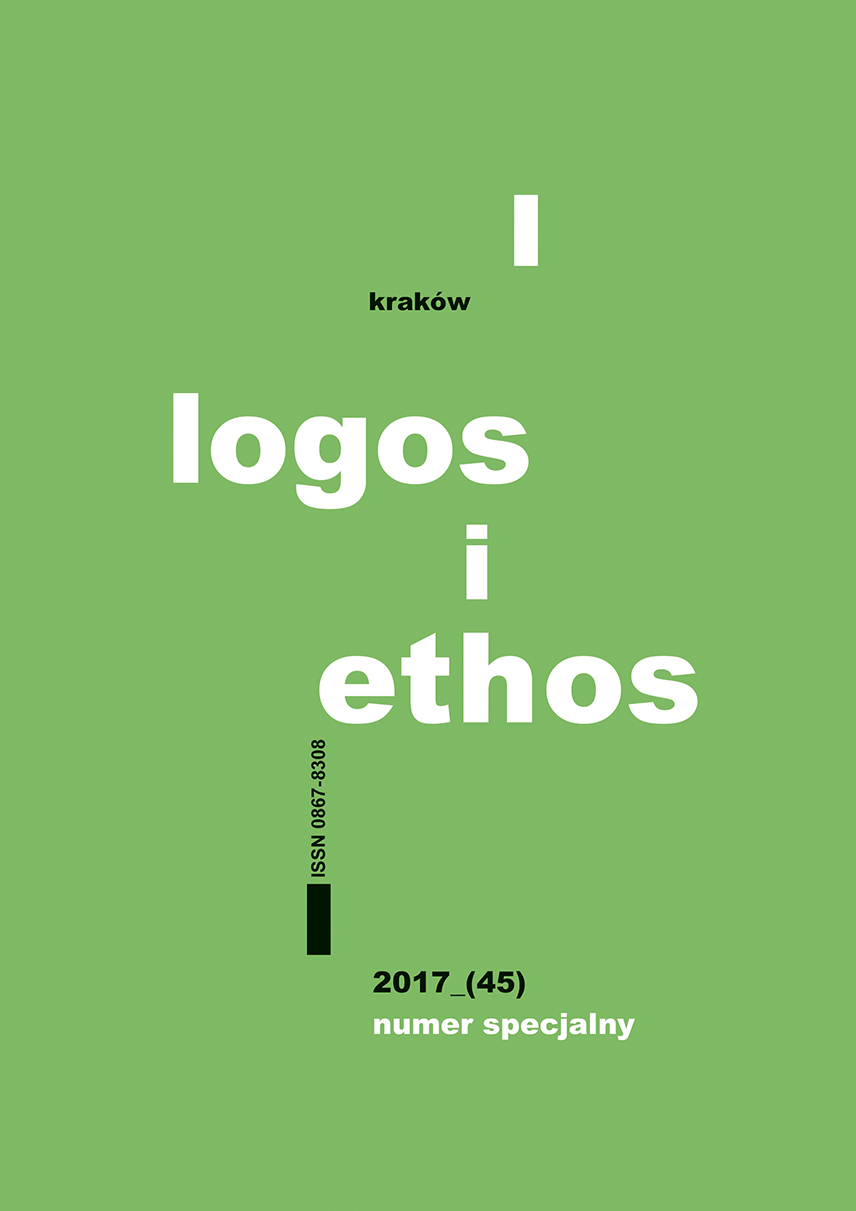Minimalizm życiowy – umiar i substytut zdrowego rozsądku we współczesnym społeczeństwie konsumpcyjnym
DOI:
https://doi.org/10.15633/lie.2343Słowa kluczowe:
społeczeństwo konsumpcyjne, życie minimalne, potrzeby, slow life, straight EdgeAbstrakt
Minimalizm życiowy jest współczesnym trendem, który zaistniał w odpowiedzi na współczesny konsumpcjonizm. Obecnie staje się wyrazem wolności i świadomego życia oraz eliminowania z niego tego, co niepotrzebne. Esencją minimalistycznego stylu życia staje się umiar i zdrowy rozsądek, dzięki czemu zyskujemy więcej wolności, więcej czasu i miejsca na to, co jest naprawdę dla nas ważne w życiu. Wydaje się, że w życiu minimalisty każdy przedmiot powinien mieć swoje przeznaczenie i konkretną funkcję, oczywiście w przeciwieństwie do konsumpcjonizmu, który z kolei polega na zdobywaniu dóbr materialnych bez odniesienia do rzeczywistych potrzeb. Jednak zauważa się, że każdego dnia wzbudza się w nas fałszywą potrzebę posiadania czegoś, co jest nam zupełnie niepotrzebne i zaczynamy niekończącą się pogoń za zdobyciem nowych przedmiotów i dopasowaniem swojego wizerunku do aktualnej mody. Należy pamiętać, że minimalizm niekoniecznie sprowadza się do tego, aby wszystkiego było mniej, wręcz przeciwnie – można dzięki niemu wiele zyskać. W referacie zastanowię się nad zaletami i wadami życiowego minimalizmu.
Bibliografia
Babauta L., Książeczka minimalisty. Przewodnik szczęśliwego człowieka, tłum. M. Gutowski, Gliwice 2009.
Bauman Z., Dwa szkice o moralności ponowoczesnej, Warszawa 1994.
Bauman Z., Praca, konsumpcjonizm i nowi ubodzy, Kraków 2006.
Bylok F., Model nowego konsumenta w społeczeństwie informacyjnym, w: Społeczeństwo informacyjne. Aspekty Funkcjonalne i dysfunkcjonalne, red. L. H. Haber, M. Niezgoda, Kraków 2006, s. 430–440.
Droga minimalisty, http://drogaminimalisty.blogspot.com/2012/01/wady‑i‑pulapki‑minimalizmu.html (10.04.2016).
Fromm E., Mieć czy być?, przeł. J. Karłowski, Poznań 2003.
Girard R., Szekspir. Teatr zazdrości, tłum. B. Mikołajewska, Warszawa 1996.
Gutek A., Mniej znaczy więcej. Carl Honore o wartości „slow life!”, http://stressfree.pl/mniej‑znaczy‑wiecej‑carl‑honore‑o‑wartosci‑slow‑life/(10.06.2016).
Hejnicka‑Bezwińska T., Orientacje życiowe młodzieży, Bydgoszcz 1991.
Jakubaszek W., Orientacje życiowe młodzieży na przykładzie badań w Ośrodku Szkolenia i Wychowania Ochotniczych Hufców Pracy w Krakowie, Kraków 2010.
Kępiński A., Lęk, Warszawa 1977.
Läckberg C., Latarnik, tłum. I. Sawicka, http://lubimyczytac.pl/cytat/93856 (1.06.2016).
Melosik Z., Kultura popularna i tożsamość młodzieży. W niewoli władzy i wolności, Kraków 2013.
Minimalizm życiowy: filozofia, styl życia, http://ekominimalizm.pl/minimalizm.html (4.04.2016).
Mróz B., Dyskretny urok konsumpcjonizmu. Szkic do portretu konsumenta XXI wieku, w: Życie w konsumpcji, konsumpcja w życiu, red. A. Zawadzka, M. Górnik‑Durose, Sopot 2010, s. 15–33.
Ritzer G., Magiczny świat konsumpcji, tłum. L. Stawowy, Warszawa 2009.
Rudnik R., Straight Edge, http://wiedzaiedukacja.eu/archives/918 (10.06.2016).
Sandel M., Czego nie można kupić za pieniądze, tłum. A. Chromik, T. Sikora, Warszawa 2013.
Szlendak T., Kultura nadmiaru w czasach niedomiaru, cyt. za Dalajlama, http://kulturawspolczesna.pl/archiwum/2013/1 (9.06.2016).
Tuszyńska J., Minimalizm – substytut zdrowego rozsądku, https://tyledolubienia.wordpress.com/2016/02/03/minimalizm‑sybstytut‑zdrowego‑rozsadku/(4.04.2016).
Walotek‑Ściańska K., Homo Consumens, http://www.sbc.org.pl/Content/134276/Walotek-%C5%9Acia%C5%84ska.pdf (10.06.2016).
Wiończyk G., Pragnienie innego w perspektywie teorii mimetyczno‑ofiarniczej Rene Girarda, „Zeszyty Naukowe Towarzystwa Doktorantów UJ. Nauki Humanistyczne” numer specjalny 6 (1/2015), s. 127–142.
Witczak R., Racjonalne oszczędzanie, http://racjonalne‑oszczedzanie.blogspot.com/2011/11/gra‑pozorow‑czyli‑biuro‑w‑domu‑i‑biznes.html (4.04.2016).
Pobrania
Opublikowane
Numer
Dział
Licencja
Autorzy publikujący w czasopiśmie udzielają jego wydawcy zgody o następującej treści:
- Autor zachowuje autorskie prawa majątkowe do utworu, a jednocześnie udziela wydawcy czasopisma zgody na jego pierwszą publikację w wersji drukowanej i wersji online na licencji Creative Commons Uznanie autorstwa 4.0 Międzynarodowe oraz zgody na wykonywanie opracowań, w tym przekładów.
- Autor ma możliwość udzielania zgody niewyłącznej na opublikowanie utworu w wersji, która ukazała się w czasopiśmie (np. zamieszczenia go w repozytorium instytucjonalnym lub opublikowania w książce), wraz z informacją o jego pierwszej publikacji w czasopiśmie.
- Autor może umieścić swój utwór online (np. w repozytorium instytucjonalnym lub na swojej stronie internetowej) jeszcze przed zgłoszeniem utworu do czasopisma.

